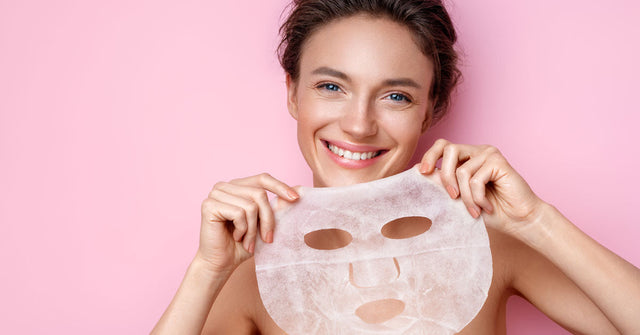Say you’ve recently been seeing that the skin beneath your eyes is becoming darker - and before you notice it, you’ve got a problem with dark circles. These can be quite a concern. While not necessarily dangerous, undereye dark circles can take a toll on your mental health; and, at times, it’s not just a skin problem - but rather a sign of something else going on, too. That’s why it’s important to know why you have those dark circles.
What are depression under eye dark circles?
We’ve all seen it before. Dark circles are unpleasant dark marks that appear beneath the eyes. You probably first saw them in a friend who might have been always buried in a lot of work. But now, it might happen to you too. The thing is, many things can cause them - depression being just one of the many possible reasons!
Depression undereye dark circles generally mean you are struggling to deal with your depressive thoughts and the symptoms that this condition causes.
Now, depression is something that affects your mind. You won’t necessarily link a mental disease with problems related to your skin, right? Well, the truth is, mental conditions can affect your appearance! It’s not only something that can make you feel moody or depressed, but it’s going to have an impact on how you care for yourself. At first, you won’t notice the dark circles too much. As time passes, however, they can become more prominent, and at this point, they’ll start to affect your self-confidence.
The relationship between depression and dark circles under the eyes
If you’re doing some research to discover why you’ve got those dark circles under your eyes, depression isn’t usually the first thing you’ll notice. People mostly link the said condition to fatigue, sleep deprivation, dehydration, and problems with your nutrition. The truth is - depression can also be the culprit behind this change to your visual appearance.
There are different ways in which depression can contribute to your dark circles. Let’s first focus on some of the more direct effects. First of all, while you feel depressed, you’re likely to experience variations in your blood flow [1]. Blood flow can slow down in some areas - including your skin. That’s something that can contribute to those dark circles.
There are a couple of indirect factors, too. One thing to note here is that depression can have a really bad impact on your ability to sleep, as well as on other factors - like how well you take care of yourself, how much you exercise, and more. If these happen, then it can cause complications of depression that may also contribute to those dark circles.
You might have problems sleeping well - and this makes you feel tired. It also releases more cortisol in your body. When you’re not taking care of yourself, you might not be concerned about how much water you drink or what you eat. If these things are affecting you - then they are also an indirect impact that depression has on your skin.
It’s not just about the dark circles, though. Depression can have other effects on your skin as well. When you don’t eat properly due to your depressed mood, then your skin suffers. You may start to notice your skin looks dull and no longer has that vibrance to it, for example.
What are the other causes of dark circles under the eyes?
We’ve established that there is something like depression undereye dark circles - that’s when depression makes you feel fatigued and causes stress. It leads to your skin darkening underneath your eyes. But, what else can cause this problem? Maybe you’re not depressed, but you still see them whenever you look in the mirror.
We’ve covered how depression can affect your skin - and even considered the typical depression undereye dark circles that you may notice. Now, let’s explore some of the other reasons why people often have this problem with the skin under their eyes.
1. Sleep
Sleep is a really important process, yet a lot of people don’t get their average of seven to eight hours of sleep each night. So, the question now is - how exactly does sleep contribute to these dark circles? Well, it starts with what happens if you’re sleep-deprived. Your body makes more cortisol - typically known as a stress hormone.
Once that happens, blood pumps faster through your body - and now, you have to remember that the skin around your eyes is, in fact, very thin. So, when this happens, this consistent blood flow that happens can start to appear as dark marks. But, if blood slows down, then it causes blood to pool here. That’s going to make the dark circles even more noticeable. Plus, if you don’t get enough sleep, it leads to fatigue and can even have an impact on your complexion.
2. Hereditary factors
When you’re talking about things you can inherit from your parents, let’s face it - dark circles around your eyes could be the last thing that will come across your mind. Yet, it’s true that some hereditary factors affect your risk of having them.
If your dark circles are because of hereditary factors, then they can trigger or appear at any time. There’s no need for other “stimuli” - such as insufficient sleep, fatigue, or not drinking enough water because they develop regardless. It’s because the genetic makeup you inherit from a previous generation causes the pigmentation in the skin under your eyes to be darker.
3. Aging
Yes, age plays a role too. Remember how the faster blood flow that comes with a release of cortisol makes your blood vessels more noticeable in the skin under your eyes? Well, the older you become, the thinner your skin gets. When your skin gets thinner, those blood vessels are going to become even more visible - and this can happen even if you get enough sleep.
4. Dehydration
We’ll also have to cover dehydration, which is another common reason why people have these dark circles under their eyes. In this case, it’s not depression undereye dark circles. Instead, it has more to do with what you put into your body.
Most people don’t drink enough water. That fact is certainly not news - but we often don’t realize what happens if there are not enough fluids in our bodies. Remember that your skin also needs to keep hydrated [2], and this not only accounts for the items you apply from the outside. So, if you’re dehydrated, your skin can become dry and dull. This also makes it easier for those dark circles to start appearing.
How do you get rid of depression and dark circles?
You should now have a better understanding of what causes dark circles. Yes, depression is a potential cause - but there are more things that you should keep in mind. So, what should you do? Well, there are many strategies you can use to get rid of these dark circles. While you’ll have to consider the types of dark circles you have, let’s cover a few important basics to start with.
1. Sleep Well
Sleep deprivation can have a really bad impact on your body - including your skin. If you’re not sleeping enough, then you’ll feel fatigued the next day. That’s only the start of it, though. Poor sleep also causes longer-term problems, like memory issues, and even raises your risk for obesity, heart disease, and more.
So, the first step is to sleep better. Take the time to plan out a schedule. Go to bed at the same time every night. Cut your “movie” time short, or watch one less episode of your favorite show. These little things can go a long way in helping you get rid of those dark circles.
2. Dietary changes
Next up - dietary changes. If you’re wondering, “Why are my eyelids dark?”, or you have concerns with your skin in general, the problem may lie with your diet. Start by looking at what you’re eating at the moment. If your diet is filled with fast foods, processed food, saturated fats, and lots of sugar - then you might be damaging your skin from the inside. Switch up your habits and try to cook dinner yourself.
There are lots of recipes that can help you fill up with healthy foods that can go a long way in restoring the youthfulness of your skin.
3. Stay hydrated
Of course, hydration is another thing we should talk about. How much water are you drinking every day? Most people can’t say they drink enough. We’ve already covered the fact that dehydration affects your skin and can lead to dark circles. So, if you want to take care of depression and undereye dark circles, then you’re going to want to fill up on more water.
4. Use Eyevage
It’s also possible to quickly fade dark undereye circles with Eyevage. This cream was designed by experts in the skincare sector and makes use of natural ingredients. That means you’ll not only be able to take care of those dark undereye circles, but you also get a product that won’t expose your skin to the harmful effects that some of the pharmaceutical options can produce.
There are other ways to enhance your routine further. Use the daily moisturizer Infusoderm to take care of your skin throughout the day. That’s a great way to ensure your skin doesn’t dry out.
Before you go to bed, apply the night cream Suvoderm. This combination is going to help you adopt a healthier skincare routine and not only helps with your dark circles but offers added benefits too.
Frequently asked questions
What is the biggest cause of dark circles?
Aging! Sure, there are a lot of things in life that can cause those dark circles. But, in the end, aging is one of the major things to contribute to the darkening of your skin underneath the eyes. It’s because as you age, your skin becomes thinner - and that can reveal some of the blood vessels underneath.
Are dark under-eye circles permanent?
Mostly no. While it’s something more permanent when age causes it, other things apply too. By taking care of problems like poor sleep, dehydration, and depression, you’ll be able to see real improvements in your dark circles.
What deficiency causes dark circles under the eyes?
A study [3] in the Indian Dermatology Online Journal looked at vitamins and their relation to skin pigmentation. They found that vitamin B12 - or, more specifically, a lack thereof - can increase skin pigmentation; and when this happens, you’re more likely to see those dark circles under your eyes.
Conclusion
It’s true - depression undereye dark circles are a problem that people struggle with. If you’ve got these dark circles under your eyes, make sure you consider why first. If it’s caused by depression, make sure you see a professional who can help. Other things contribute, too, such as poor sleep and dehydration. Look closely at your life to determine the factors, then consider the steps you need to take to get rid of those dark circles.
References
1] ↑https://pubmed.ncbi.nlm.nih.gov/33601686/
2] ↑https://pubmed.ncbi.nlm.nih.gov/35179449/
3] ↑https://www.ncbi.nlm.nih.gov/pmc/articles/PMC6536080/
Mentioned in this article
More stories

How to Get a Brighter, More Radiant Complexion









